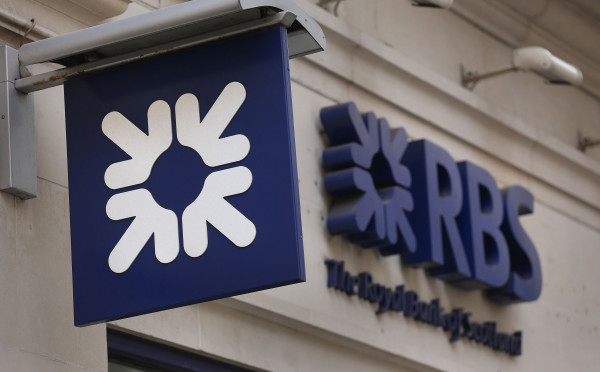

Pale, male and poor shareholder returns are among concerns raised by Royal Bank of Scotland shareholders against the bank.
On 30 December, a resolution and a bundle of associated requisition forms were delivered to RBS' London Offices by more than 100 private investors.
The investors, supported by ShareSoc and the UK Shareholders Association (UKSA), have requisitioned a resolution to install a new "Shareholder Committee" at the company.
This will include shareholder representatives who, according to the 100 or so investors represented by ShareSoc and the UKSA, will help improve the corporate governance at the bank.
There are approximately more than 200,000 shareholders overall in RBS.
A spokesman for RBS said: "Once the final draft resolution has been delivered we will look closely to ensure that it complies with all corporate governance and listing guidelines."
A statement co-ordinated by ShareSoc and UKSA stated despite several changes at the bank since the failure that occured during the financial crisis of 2008 to 2009, there is still too little diversity at the top, and too much focus on the short-term, rather than long-term management.
The statement claimed: "RBS has been poorly managed. Long-term shareholders have suffered a loss of greater than 95 per cent of value of their investment, since the RBS share price peaked in 2007. This was due to a failure of corporate governance on a number of fronts."
It claimed these fronts were:
- Strategy: an excessive focus on the short-term, rather than prioritisation of long-term sustainability, the large acquisition of ABN Amro for £49 bn with excessive leverage, and a failure to focus on customers.
- Operations: not treating customers fairly, mis-selling mortgage backed securities in the United States, Libor fixing, PPI mis-selling, 2008 rights issue, £3.9bn has been set aside for claims, but some sources say claims could be $27bn.
- Executive pay: PR surrounding executive pay has impacted the brand, huge criticism of pay complexity, excessive bonuses, complex LTIPs, payments for failure, as well as the overall quantum.
- Culture: excessive risk, short-termism, greed and irresponsibility was allowed and to some degree encouraged, a pale, male and stale Board, with one woman out of 18 directors in 2008. This still persists: there are only three women out of 12 board members today.
The group hopes RBS will put this proposal to a vote at its annual general meeting in May 2017, as long as the resolutions themselves meet certain listing and corporate governance guidelines.
Mark Northway, chairman of ShareSoc, said: "One objective is to stop the events that took place at RBS from happening again.
"A dominant chief executive; concealing the true financial position of the company from investors; proceeding with a reckless acquisition; and then publishing a rights prospectus which concealed the problems faced by the company. These are not examples of good governance.
"Shareholders, including individuals, deserve a new approach; one with greater involvement and more effective input from them as ultimate owners."
He said the initiative would "significantly benefit corporate governance at RBS, and represents a valuable opportunity for RBS to lead the way in exploring a concept which works well in other countries".
The RBS spokesman did not comment on the substance of these claims.
In November 2016, the government issued a 59-page document, Corporate Governance Reform, which highlighted a 'breakdown' in the corporate governance of many publicly listed UK companies.
Prime Minister Theresa May's introduction to the Green Paper said: "Good corporate governance is about having the right checks and balances within big business to strengthen decision making and accountability.
"This Green Paper therefore focuses on ensuring that executive pay is properly aligned to long term performance, giving greater voice to employees and consumers in the boardroom, and raising the bar for governance standards in the largest privately held companies.
"These are issues which are about competitiveness, and creating the right conditions for investment, as much as they are issues about fairness."
In May 2016, sister paper the FT issued a report on the May AGM at RBS, at which activist shareholders questioned remuneration practices.
Back in 2011, the then Financial Services Authority issued a 452-page report into the failure of RBS during the credit crisis of 2008-2009.
The report, called The failure of the Royal Bank of Scotland, acknowledged FSA supervision had been lacking at the time of the crisis. It said measures had been put in place to improve the regulatory powers on banking supervision.
But it laid much of the blame for the demise of RBS at the feet of its management. The report said: "It describes the errors of judgement and execution made by RBS executive and management, which in combination resulted in RBS being one of the banks that failed amid the general crisis.
"These were decisions for whose commercial consequences RBS executive and Board were ultimately responsible."
The 2011 FSA report also commented on the financial impact RBS's failure had on the wider UK economy and the taxpayer. It said: "In October 2008, RBS in effect failed and was part nationalised.
"From 7 October, it relied on Bank of England emergency liquidity assistance to fund itself; and on 13 October, the government announced that it would provide up to £20bn of new equity to recapitalise RBS.
"Subsequent increases in government capital injections amounted to £25.5bn. RBS’s failure thus imposed significant direct costs on British taxpayers.
"In addition, the failure played an important role within an overall financial crisis which produced a major recession."
Find out more
Clients who are RBS investors can get more information on this initiative here



